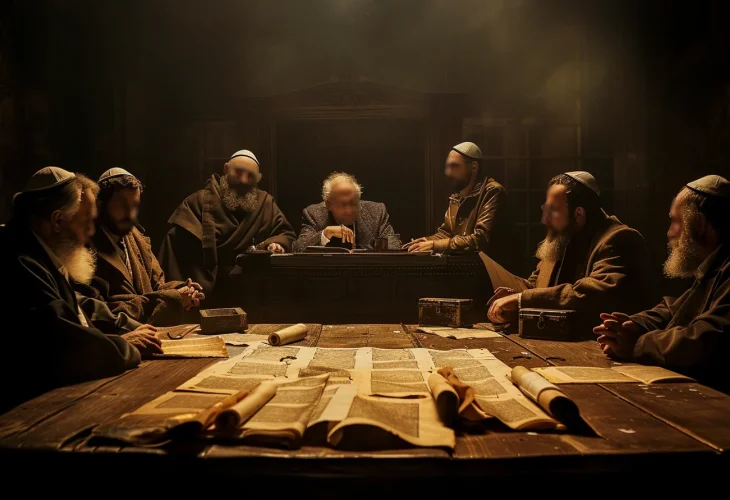History and Archaeology
The Missing Inheritance: A Scandal That Shook the Community
After Joseph Abo’s passing, nothing remained of his riches. What happened stunned the Jewish community and led to a powerful halachic ruling

A joyous wedding took place in the Jewish community of Oran, Algeria, around the year 1400, more than 600 years ago. Joseph Abo, a wealthy and successful man, finally married after years of searching. Though he had accumulated great wealth, his quiet and reserved personality had made it hard for him to find the right match.
He eventually married Leah, a local widow who had lost her first husband just a few months earlier. Leah and her young son moved into Joseph’s large and comfortable home, and the entire community wished them a future filled with blessing.
But soon, it became clear that Leah was quite forceful in character. Together with her mother, she took charge of Joseph’s business, and troubling signs began to appear.
Rabbi Amram, the rabbi of Oran, described what was happening in a letter he sent to one of the greatest sages of Spanish Jewry, Rabbi Yitzchak bar Sheshet, known as the Ribash:
“This Joseph placed the management of his affairs in his wife’s hands. She had all the keys to the house, and she was secretly selling his goods without his knowledge. He often complained both at home and in public that merchandise was going missing: purple fabrics, silk, spices like pepper, oil, and other valuable items. But he couldn’t figure out where or how everything was disappearing. Her mother served as her cover, accepting and helping to sell the goods taken from his home.”
Despite this, Joseph remained quiet and passive. Even as he lost control of his business, he said nothing. He couldn’t understand how things were disappearing, but he continued with life and even had children with Leah.
Eventually, Joseph became seriously ill. When the rabbi came to him and asked if he wanted to write a will to protect his large fortune, Joseph said he trusted the beit din (Jewish court) to handle the matter properly. He didn’t have the strength to confront the betrayal and left it in their hands.
Right after Joseph’s passing, the court ordered all his chests and storage rooms locked until the situation could be clarified. The family observed shiva (the seven-day mourning period) and honored his memory. But once the shiva ended and they opened the storerooms to assess the estate, everything was gone.
In response, Rabbi Amram announced a cherem (a public ban), declaring that anyone who knew what had happened to Joseph’s assets must testify in court or face serious consequences.
After this dramatic announcement, a blacksmith came forward in fear and trembling. He confessed that Joseph’s wife had asked him to secretly make extra copies of all the house and warehouse keys. Others also began to testify. They spoke of secret movements of goods during Joseph’s illness and even during the shiva. Her son from the previous marriage had been seen transferring sealed packages late at night, using different messengers. Some even testified that she had treated Joseph with neglect and disregard while he was ill.
Leah, however, denied everything. Not only that, she demanded her ketubah—the legal document promising her support in marriage, claiming she was entitled to its full amount.
The Ribash studied all the testimony carefully and wrote back sharply. He found it impossible to believe that Joseph Abo had truly died penniless. “Indeed, I am marvelously puzzled by this matter,” he wrote. “For the late, unfortunate Joseph Abo, of blessed memory, was very sharp and skilled in trade. How could he have fallen from such wealth to absolutely nothing?”
The Ribash also ruled that the blacksmith bore a portion of the guilt. “Truly,” he wrote, “the blacksmith who made those duplicate keys for her secretly, without the husband’s knowledge, and took a high payment, deserves to be punished. He should have understood that she intended to steal, and by helping her, he became a partner in the wrongdoing. As the saying goes, ‘It’s not the mouse that steals, but the hole.’”
In other words, it wasn’t just the wife who was at fault but the one who helped create the opportunity for wrongdoing shared in the responsibility. The blacksmith should not have turned a blind eye. If a woman secretly asks for keys to her husband’s storerooms, it’s clear something is not right.
This story, though painful, reminds us how vital honesty, awareness, and responsibility are in both our private and public lives and how halacha seeks to protect justice and truth for all.
Ach Tov VaChesed – Daily Halacha

